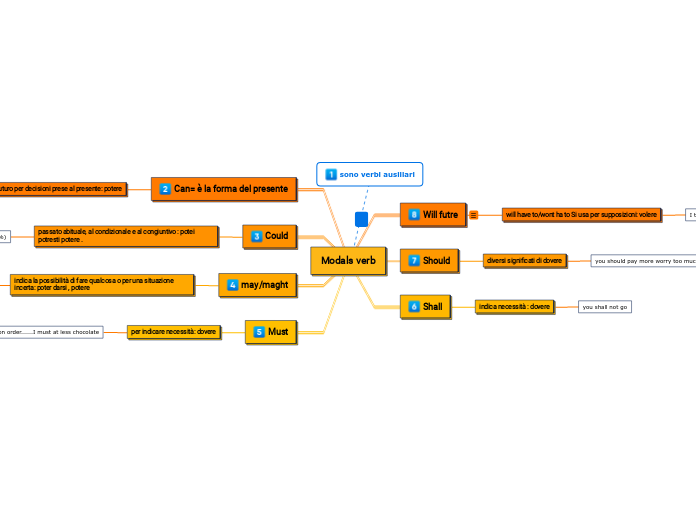von MATTIA ANDREA TARANTINO Vor 4 Jahren
267
Modals verb
This text discusses different modal verbs in English, outlining their various uses and meanings. The verb "may" or "might" expresses the possibility of an event occurring, with "may"

von MATTIA ANDREA TARANTINO Vor 4 Jahren
267

Mehr dazu
As the main word in a sentence, the verb will generally describe an occurrence or an action.
An infinitive verb is essentially the base form of a verb with the word 'to' in front of it. When you use an infinitive verb, the 'to' is a part of the verb. It is not acting as a preposition in this case.
The negative verb forms are made by putting not after an auxiliary verb.
Auxiliary verbs are verbs such as have, be, may, do, shall, will, can, or must that are used with another verb to show the verb's tense, to form a question, etc.
A modal verb is a type of verb that is used to indicate modality. Commonly used modal verbs are can, could, must, should, had better, have to and sometimes need or dare.
Conditional verbs are used to create conditional sentences, which express hypothetical or unlikely situations. Conditional verbs can be used in the past, present, or future tense, and auxiliary verbs like can/could, will/would, and may/might are important in forming conditionals
A transitive verb will only makes sense if it applies its action on an object.
Mattia Tarantino 4C
An intransitive verb has two characteristics:
1.it is an action verb, expressing a doable activity
2.it will not have a direct object receiving the action
Create sentences with examples!